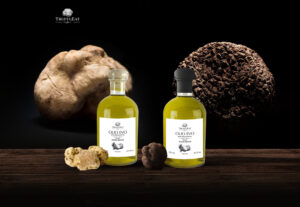By Michele E. Buttelman
California may be most famous as the home of Hollywood and thousands of films and television shows, but it all starts with the written word. Here are but a few of the many literary locations to be found in California.
Theodor Seuss Geisel
National Reading Month is celebrated in March to honor Dr. Seuss’s birthday. Known as Dr. Seuss, Geisel (1904 –1991) was a longtime resident of the La Jolla community of San Diego. Millions of children learned to read thanks to Dr. Seuss and “The Cat in the Hat” and “Green Eggs and Ham.”
Geisel Library at University of California, San Diego
9500 Gilman Drive,
La Jolla, CA 92093
More than 8,500 items comprise the Dr. Seuss Collection at the Geisel Library in La Jolla. It’s the world’s largest collection of Seuss items and is filled with original manuscripts, drawings, notebooks, photos and more. The library was renamed after Seuss in 1995.
John Steinbeck
John Steinbeck (1902–1968) was born in the California farming town of Salinas. Steinbeck lived in Pacific Grove from 1930-36 and his most famous works were written and set in Monterey County, as well as Salinas and parts of the San Joaquin Valley.
He won the Pulitzer Prize for Fiction ins 1940 for “The Grapes of Wrath” (1939).
Other famous works include “East of Eden” (1952), “The Winter of Our Discontent” (1961), “Of Mice and Men” (1937) and “Cannery Row” (1945).
He was awarded the Nobel Prize for Literature in 1962.
One of his last published works was “Travels with Charley,” a travelogue of a road trip he took in 1960 to rediscover America.

National Steinbeck Center
1 Main St.,
Salinas, CA 93901
www.steinbeck.org
Open Wednesday through Sunday 10 a.m. to 5 p.m. Its “Steinbeckiana” includes “Rocinante,” the camper-truck in which Steinbeck made the cross-country trip described in “Travels with Charley.”
The Steinbeck House
132 Central Ave.,
Salinas, CA 93901
This Queen Anne style Victorian was the birthplace and boyhood home of author John Steinbeck. In August of 2000, the house was listed on the National Register of Historic Places.
The house is open as a restaurant Tuesdays-Saturdays 11:30 a.m.- 2 p.m. The Best Cellar Gift Shop is open Tuesdays-Saturdays 11 a.m.- 3 p.m.

Cannery Row
700 Cannery Row,
Monterey, California 93940
In 1958 the street that Steinbeck described as “Cannery Row” in his novel, once named Ocean View Avenue, was renamed Cannery Row in honor of the novel. Instead of fish canneries the street has been transformed to include waterfront hotels, fine art, restaurants, boutiques, artisanal stores and boutiques.
San Francisco: A Literary Hub
Before there were “hippies” there were “beatniks.” The Beat movement, also called the Beat Generation, was a social and literary movement originating in the 1950s in bohemian artist communities including San Francisco’s North Beach. Famous Beat literary figures included Jack Kerouac, Allen Ginsberg, Alan Watts, Neal Cassady, Gregory Corso and others.
The Beat Museum
540 Broadway,
San Francisco, CA
www.kerouac.com
Open Thursday-Monday 10 a.m.- 7 p.m.
The Beat Museum is home to an extensive collection of Beat memorabilia, including original manuscripts, rare books, letters, personal effects and cultural ephemera.
Caffe Trieste
601 Vallejo St.,
San Francisco CA 94133
http://coffee.caffetrieste.com
San Francisco’s historic Italian neighborhood of North Beach is a literary hub. Caffe Trieste, an espresso house that first opened its doors in 1956, quickly became a meeting place for the Beat Generation’s literary heavyweights including Kerouac, Ginsberg, Watts and others.
City Lights Bookstore
261 Columbus Ave.,
San Francisco, CA 94133
Open Monday – Thursday 11 a.m. – 8 p.m., Friday – Sunday 11 a.m. – 9 p.m.
One of the most famous literary landmarks in the United States is City Lights Books, an independent shop and publishing company founded by Beat poet Lawrence Ferlinghetti in 1953.
Vesuvio Café
255 Columbus Ave.,
San Francisco, CA 94133
www.vesuvio.com
This world-renowned San Francisco saloon was first established in 1948 and remains an historical monument to the Beat Generation. It has been serving cocktails to the literary avant-garde for more than 70 years.
Raymond Chandler
Raymond Chandler (1888-1959) was a major influence in the literary genre of hardboiled detective fiction.
At least three of Chandler’s novels have been regarded as masterpieces, including “Farewell, My Lovely” (1940), “The Lady in the Lake” (1943) and “The Long Goodbye” (1953).
Chandler became a writer at age 44 after losing his job as an oil company executive during the Great Depression.
His first novel “The Big Sleep,” published in 1939, introduced audiences to the character of Philip Marlowe, the classic “hard-boiled” private detective who worked in the seamy underworld of 1930s to 1950s Los Angeles.
Chandler’s books list more than 100 identifiable locations around Los Angeles, here are just a few.
Raymond Chandler Square
At the intersection of Hollywood Boulevard and Cahuenga in Hollywood is Raymond Chandler Square. The fictional office of his fictional hero, Philip Marlowe, was in the former Security Pacific Bank building there at 6381 Hollywood Blvd., which Chandler dubbed “The Cahuenga Building.”

Musso & Frank Grill
6667 Hollywood Blvd.,
Hollywood, CA 90028
This legendary classic steakhouse founded in 1919 can be found not only in Chandler’s books, but in hundreds of books set in Los Angeles and Hollywood.
In addition, Musso & Frank has been a favorite of many literary elites including F. Scott Fitzgerald, Ernest Hemingway and William Faulkner.
Greystone Mansion ·
905 Loma Vista Drive,
Beverly Hills, CA 90210
Sternwood’s palatial estate in “The Big Sleep” is a dead ringer for the real Greystone Mansion constructed by the son of oil baron Edward Doheny, in 1927.

